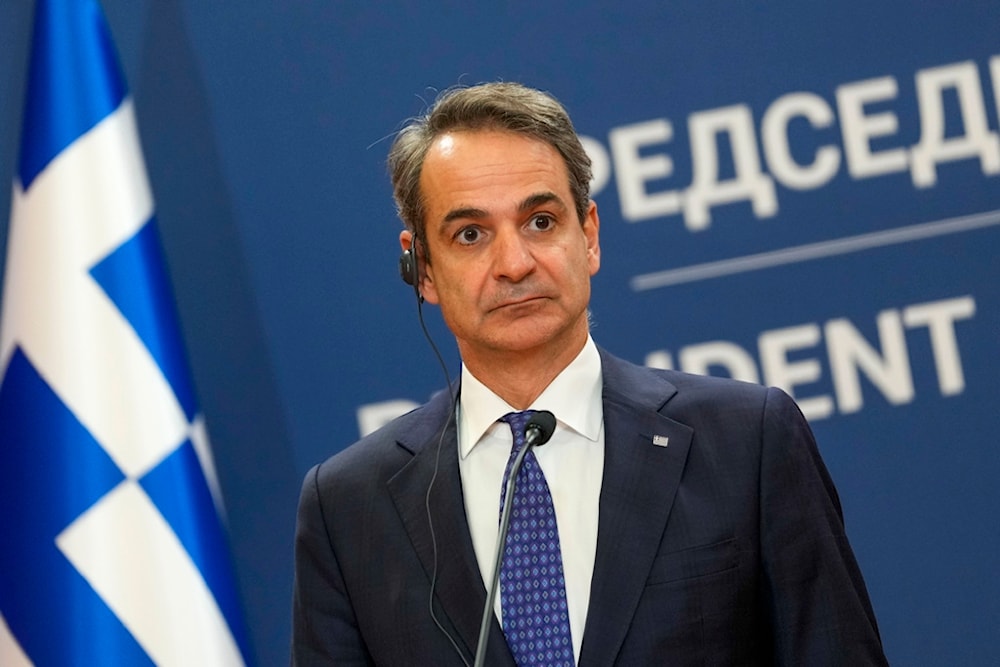Greek Opposition accuses Gov't of train tragedy evidence manipulation
After a report revealed that the government distributed edited recordings of train personnel to sympathetic media outlets, opposition leaders have vowed to push for a no-confidence vote in parliament.
-

Greece's Prime Minister Kyriakos Mitsotakis attends a joint press conference with Serbian President Aleksandar Vucic in Belgrade, Serbia, Monday, February 12, 2024 (AP Photo/Darko Vojinovic)
Greek opposition parties have launched scathing allegations against the government, accusing it of tampering with evidence to shape public opinion regarding the nation's deadliest train disaster.
Amid mounting pressure, opposition leaders have vowed to push for a no-confidence vote in parliament.
The controversy stems from a report published in a Sunday newspaper, which claims that the government distributed edited recordings of train personnel to sympathetic media outlets.
These recordings were allegedly altered to reinforce a narrative implicating human error as the primary cause of the collision that claimed the lives of 57 individuals in February 2023.
Nikos Androulakis, head of the socialist PASOK party, declared, "There is only one way: a censure motion."
Echoing this sentiment, the main opposition Syriza party has demanded the resignation of Prime Minister Kyriakos Mitsotakis, while the leftist New Left party pledged its support for the impending censure motion.
Subsequent endorsements from the Communist KKE party and the nationalist Hellenic Solution party have bolstered the opposition's stance.
Read more: Fresh round of protests in Athens over country's worst train collision
The fatal incident occurred when a freight train collided with a passenger train carrying 350 individuals, primarily students, near a tunnel outside the central city of Larissa just before midnight.
The To Vima weekly publication revealed that leaked recordings of train personnel from the night of the accident had been selectively edited to shift blame onto human error.
One crucial excerpt, previously circulated by media outlets, was reportedly manipulated to implicate a train driver who was not involved in the collision.
While the perpetrators of the alleged manipulation remain unidentified, To Vima suggested unauthorized individuals gained access to restricted material intended solely for investigators.
In response to the accusations, the government dismissed the report as "baseless," welcoming the impending no-confidence vote as an opportunity to refute the claims.
Nevertheless, opposition parties remain resolute in their pursuit of accountability, particularly following a parliamentary investigation that concluded without assigning blame to senior politicians.
Critics argue that the inquiry failed to interrogate key witnesses, fueling suspicions of a cover-up.
Over 30 railway employees and officials are facing charges in connection with the disaster, with a trial scheduled to commence in June.
Some relatives of the victims have expressed dissatisfaction with the official investigation, alleging negligence and the oversight of critical evidence.

 3 Min Read
3 Min Read








